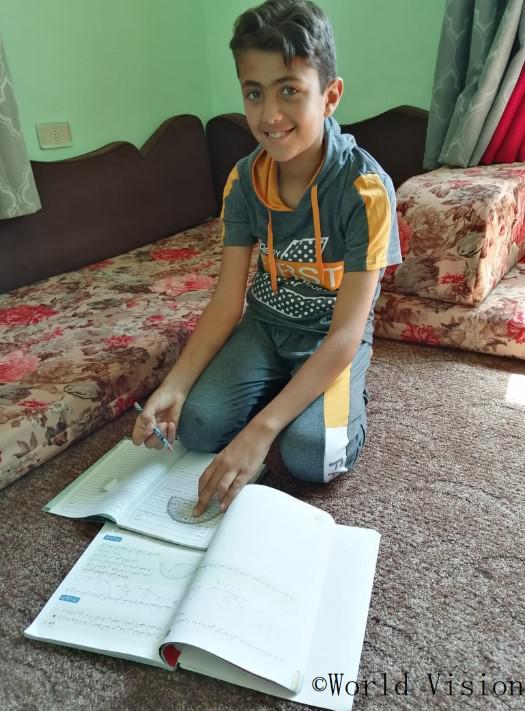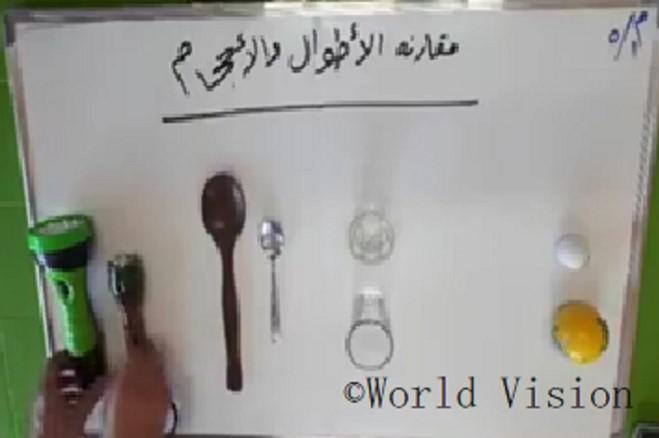| Organization | World Vision Japan |
|---|---|
| Title | Distance remedial class and continuation of TOKKATSU |
| City, Country | Irbid, Jordan |
Since 2014, World Vision Japan has been supporting children affected by the Syria crisis in Irbid, northern Jordan where accommodates a number of Syrian refugees . Jordanian government introduced double-shift schooling system which Jordanian students study at school in the morning shift, while Syrian students study in the afternoon at 204 public schools, to ensure Syrian refugee children’s access to education. However, double-shift schooling has a negative impact on quality of public education by shortening learning hours, increasing students’ number per class, and limiting teacher’s capacity to support children’s learning and their school life. We have been providing the students who need additional learning support with remedial class for 6 years to enhance their learning motivation and improve their basic academic skills. It also contributes to prevent them from drop-out from schools, which could lead to child protection concerns such as child labour and early marriage.
Because of the outbreak of COVID-19, the Government of Jordan announced nationwide lockdown in the middle of March and all the educational institutions were closed. Although the number of people affected by COVID-19 has been decreased and the government has drastically eased the lockdown and movement restrictions, schools remain closed as of early July. The Ministry of Education provides TV and online educational programs for children, however children who face difficulty in normal learning process struggle more to catch up with the remote learning programs, and Syrian refugee children from vulnerable families without TV and ICT equipment have no access to those programs.
This year, World Vision Japan has been planning to implement normal remedial education program for 576 students (7 to 13 years old) in 4 schools in Irbid. However, after the school closure, we developed and launched remote remedial education program on April 19. As same as face to face classes, Arabic, English and Mathematics lessons are being provided. Remedial teachers prepare video clips and worksheets on the home learning contents twice a week, send them to mobile phones of student’s parents through WhatsApp, and the students watch the video clip to answer the worksheet. In the video clip, simple visual materials such as cups and cooking tools are utilized for explanation, helping the students to understand learning contents easily and enjoy learning. They also attend a virtual classroom with other students on Zoom once a week. In the participatory and interactive class of Zoom, the students can ask what they cannot understand and discuss with other students to deepen their understanding.
Due to the school closure, lockdown, and “stay home” restrictions, the students have got more time to spend with their families at home. However, stress among many households is concerning due to the COVID-19 outbreak, loss of job, and strained financial situation, which put the students more at a risk of domestic violence and in need for support to promote smooth communication between children and parents. Therefore, we implement “little helper operation at home” referring to the Japanese school experiences. Under this activity,children and parents discuss and decide what kind of home tasks children could do in their household. Parents are encouraged to assist their children to complete the tasks regularly and acknowledge their accomplishment even if it is very small. We support children and parents so that they can help each other, parents can grow as a good educator at home for their children, and children can enhance their autonomy and sense of responsibility.
 Distance learning (Solving mathematics quizzes using a protractor after watching a video clip)
Distance learning (Solving mathematics quizzes using a protractor after watching a video clip)
 Mathematics video clip (Teaching the difference between length and dimension using kitchen utensil)
Mathematics video clip (Teaching the difference between length and dimension using kitchen utensil)
| Contact | https://www.worldvision.jp/ | yukari_iwama@worldvision.or.jp (Yukari Iwama) |
|---|







